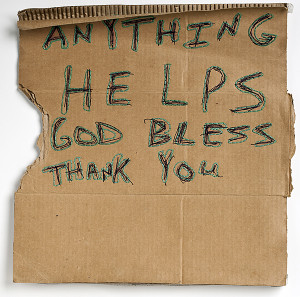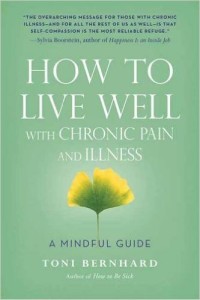 I hear quite a bit about compassion, that brand of selfless love we usually judge ourselves to be lacking. Talking about compassion may be one reason it is so frequently misunderstood as something that we should be doing. But compassion doesn’t need doing. It exists already in the harmony of things just as they are.
I hear quite a bit about compassion, that brand of selfless love we usually judge ourselves to be lacking. Talking about compassion may be one reason it is so frequently misunderstood as something that we should be doing. But compassion doesn’t need doing. It exists already in the harmony of things just as they are.
Discord comes from our doing — when we impose our judgment, expectations, fear and greed. Compassion comes from undoing. Compassion greets us when we undo our boundaries and erase the lines we said we’d never cross. Compassion waits in the space between us, the space that only seems to separate us: a gap we close when we cease all self-serving judgment and take care of whatever appears in front of us.
We don’t have to go anywhere else to find compassion. Not to the Himalayas or even a meditation retreat (although the latter is probably cheaper and easier on the feet.) We don’t have to sit at the foot of a guru or stand on our heads. We won’t find compassion in a book, a blog, a TED talk, a sermon or an inspirational quotation. People who argue the need “teach” compassion usually mean their own idea of compassion.
Right in front of you, every moment of every day, is the only place to practice compassion. Do you want to live in friendship or fear? Paradise or paranoia? We are each citizens of the place we make, so make it a better place. Here are 15 ways to practice compassion today. You don’t have to do 15. Just do one as an experiment so you will recognize the source of compassion within you. You’ll feel good, and then you’ll share that goodness more easily and more often.
1. At the grocery store, give your place in line to the person behind you.
2. Ask the checker how her day is going, and mean it.
3. On the way out, give your pocket money to the solicitor at the card table no matter what the cause.
4. Admire children and praise pets, especially bothersome ones.
5. Roll down your car window when you see the homeless man on the corner with the sign. Give him money. Have no concern over what he will do with it.
6. Smile at him. It will be the first smile he has seen in a very long time.
7. Do not curse your neighbor’s tall grass, foul temperament or house color. Given time, things change by themselves. Even your annoyance.
8. Thank the garbageman. Be patient with the postal worker.
9. Leave the empty parking space for someone else to take. They will feel lucky.
10. Buy cookies from the Girl Scout and a sack of oranges from the poor woman standing in the broiling heat at the intersection.
11. Talk to strangers about the weather.
12. Allow others to be themselves, with their own point of view. If you judge them, you are in error.
13. Do not let difference make a difference.
14. Do not despair over the futility of your impact or question the outcome.
15. Love the world you walk, ride and drive around in, and make it your home. It’s the only world you’ll ever live in, and you have all the love in it.
Leave aside the extraordinary lengths and heroic measures. There’s an eyeful of suffering right in front of your face. Often, people look frightened and lonely. They seem bothered, hurt and terrifically sad. Kindness doesn’t cure everything, but it cures unkindness. What a magnificent place to start.
Art:
Hand embroidery and found cardboard sign by Marc Dombrosky.
 1. Make the room quiet. As if no one were inside.
1. Make the room quiet. As if no one were inside.




 There comes a day as a parent when you realize you have accomplished nothing because there was nothing to accomplish.
There comes a day as a parent when you realize you have accomplished nothing because there was nothing to accomplish. Parents are rightfully concerned about the capacity their children have to pay attention, express empathy, and cope with the stresses that infiltrate their lives. Should we then coerce our children onto meditation cushions? Impose artificial silence, stillness or philosophical indoctrination? Before you do that, take a closer look.
Parents are rightfully concerned about the capacity their children have to pay attention, express empathy, and cope with the stresses that infiltrate their lives. Should we then coerce our children onto meditation cushions? Impose artificial silence, stillness or philosophical indoctrination? Before you do that, take a closer look.


 If my practice doesn’t make me more tolerant, humble,
If my practice doesn’t make me more tolerant, humble,




